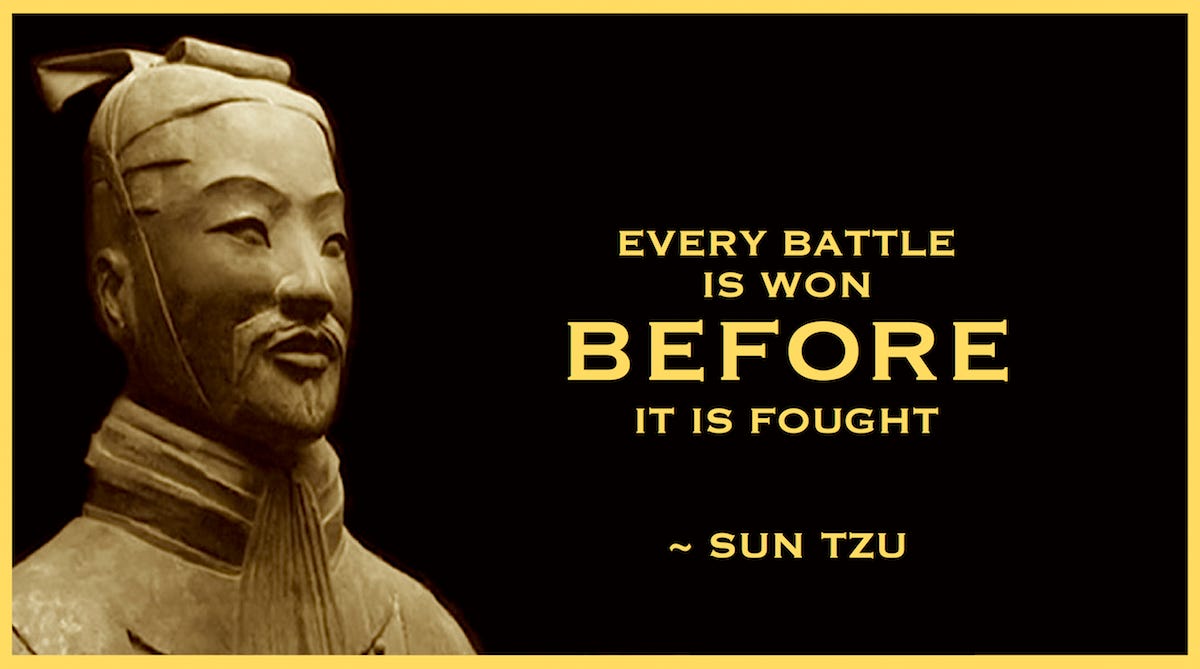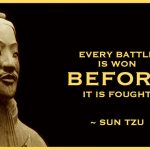
Some years ago, I read The Art of War by Sun Tzu (孫子の兵法). At the time, I was fascinated by military strategies and ancient warfare, inspired by biographies of ancient leaders and I found out that this book was a milestone to get deeper knowledge on military strategy. I was surprised to recently discover that this book has been used for centuries, not only as a guide to military strategy, but also as a model for modern leadership and management.
Written around the 5th century BC, over 2,500 years ago, by Sun Tzu, a Chinese military general, strategist, philosopher, and writer, The Art of War continues to inspire leaders across generations. Reading books and researching strategies is always a great way to improve management and leadership skills. Many great leaders have published books that provide valuable lessons and techniques. However, not everyone knows that many leaders nowadays turn to The Art of War as a source of guidance, rather than to a conventional business book.
Many would think, how can a book from thousands of years ago influence 21st century managers?
Sun Tzu’s military advice can actually be used in modern management:
- “Every battle is won before it is fought.”
Sun Tzu teaches that without planning, a battle cannot be won. This translates in business into having clear objectives, and vision that everyone understands and leaders need to proactively think about future challenges and create a plan and strategy before taking action to solve any problem.
- “A leader leads by example, not by force.”
Sun Tzu explains that a good general will be followed only if they behave with integrity and dedication, becoming a model for their soldiers. In the same way, if a leader wants their employees to follow the company’s principles and ethics, the leaders themselves should show the commitment and integrity they want in their subordinates. This creates deep trust.
- “Opportunities multiply as they are seized.”
Sun Tzu, through this principle, tells us that taking risks is necessary to have more in the fast-paced business world, avoiding risks tends to a stagnant environment. Leaders who take opportunities are the ones who take risks as well.
By integrating these time-tested principles into their leadership approach, leaders can navigate complex challenges, foster strong teams, and drive their organizations toward success.

Veritas Coach
Cristina Raffa
Cristina was born in the hot and sunny Sicily, an island in the South of Italy. She graduated in Foreign languages and literature and her interest is currently focused on Japanese language and culture. After many study trips to the UK, she decided to move there for a period of time and improve her English. When she came back to Italy, she started to teach English and Italian to students from children to adults, wanting to put in practice what she had learned in university. Focusing on her Japanese, she did an exchange study programme at Meiji University in Japan, where she discovered Veritas and its unique programme.
Here she can follow her passion and love for teaching and grow as a person thanks to her experience as a coach, improving her skills by focusing on the students and their progress.
With the help of a strong and united team, at Veritas she has the opportunity to inspire people and guide them to become global leaders of tomorrow.












